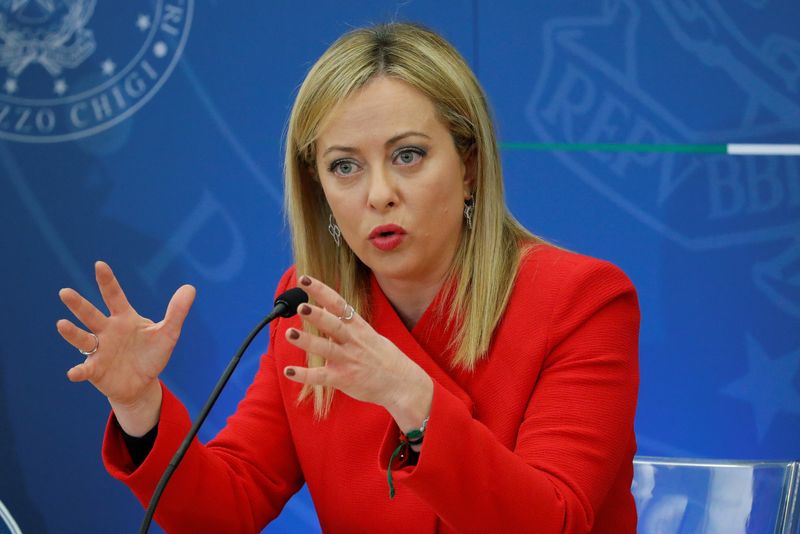By Giuseppe Fonte and Gavin Jones
ROME (Reuters) - A proposal in Italy's draft budget is not in line with its previous commitments to incentivise electronic payments as a way to boost tax compliance, according to a former Italian Treasury official who helped negotiate the accords.
One of the so-called policy "milestones" in Italy's pandemic Recovery Plan agreed with Brussels in return for around 200 billion euros ($208 billion) of EU funds was the introduction of sanctions for retailers who refuse to accept card payments.
Giorgia Meloni's right-wing government intends to scrap the requirement to accept electronic settlements for purchases below 30 euros, according to a draft of its 2023 budget approved by cabinet on Tuesday.
Economics professor Alessandro Santoro, a former Treasury official who hammered out some of the terms of Rome's Recovery Plan with Brussels under the former administration of Mario Draghi, said that while Meloni's plan may not formally break Italy's contract, it broke its spirit.
"The proposal to reduce the scope of a previous law that introduced the obligation for sellers to accept electronic payments, is not in line with previous commitments to incentivise electronic purchases as a way to increase tax compliance," Santoro told Reuters.
However, he said that because the Recovery Plan milestone mandated sanctions but did not specify the details of how they should be applied, Rome had probably managed to skirt the risk of a clash with Brussels.
"The scheme is formally compliant with the EU-funded plan," Santoro said.
Meloni is more indulgent towards cash than her predecessors, something which critics say risks encouraging tax dodgers in a country where more than 100 billion euros evaded every year, according to Treasury data.
The budget also raises a limit on cash payments to 5,000 euros from a previous limit of 1,000 euros from next year.
The imposition of the sanctions, which amount to 30 euros plus 4% of the value of the transaction, was one of the conditions for the 21 billion euro tranche of the Recovery Fund money that Rome secured in the first half of this year.

Italy has so far obtained almost 67 billion euros of the roughly 200 billion euros of EU funds it is due through 2026.
It is eligible for a further 19 billion euros at the end of this year provided it can complete the 55 targets and milestones set for the second half of 2022. ($1 = 0.9609 euros)
